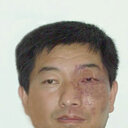Phase II study of ruxolitinib, a selective JAK1/2 inhibitor, in patients with metastatic triple-negative breast cancer.
Mots clés
Abstrait
Preclinical data support a role for the IL-6/JAK2/STAT3 signaling pathway in breast cancer. Ruxolitinib is an orally bioavailable receptor tyrosine inhibitor targeting JAK1 and JAK2. We evaluated the safety and efficacy of ruxolitinib in patients with metastatic breast cancer. This was a non-randomized phase II study enrolling patients with refractory, metastatic triple-negative breast cancer. The primary endpoint was objective response by RECIST 1.1. The study was designed to enroll patients whose archival tumor tissue was pSTAT3-positive (T-score >5) by central immunohistochemistry. pSTAT3 staining was available from 171 of 217 consented patients and pSTAT3 T-score was positive in 67/171 (39.2%) tumors, suggesting that JAK-STAT activation is frequent. Twenty-three patients including one patient with inflammatory breast cancer were enrolled. Ruxolitinib was well-tolerated with infrequent grade 3 or higher toxicities with fatigue as the most common toxicity. Among 21 patients who received at least one dose of protocol therapy, no objective responses were observed and the study was closed to further accrual. Pharmacodynamic analyses of baseline vs. cycle 2 biopsies suggest on-target activity, including a significant decrease in the proportion of pSTAT3+ cells in three patients with paired biopsies and downregulation of JAK-STAT target genes and signatures via transcriptional analyses of 11 total baseline and four metastatic biopsies. Immuno-FISH analyses demonstrate intratumoral heterogeneity of pSTAT3 and JAK2 amplification. Ruxolitinib, as a single agent, did not meet the primary efficacy endpoint in this refractory patient population despite evidence of on-target activity.


